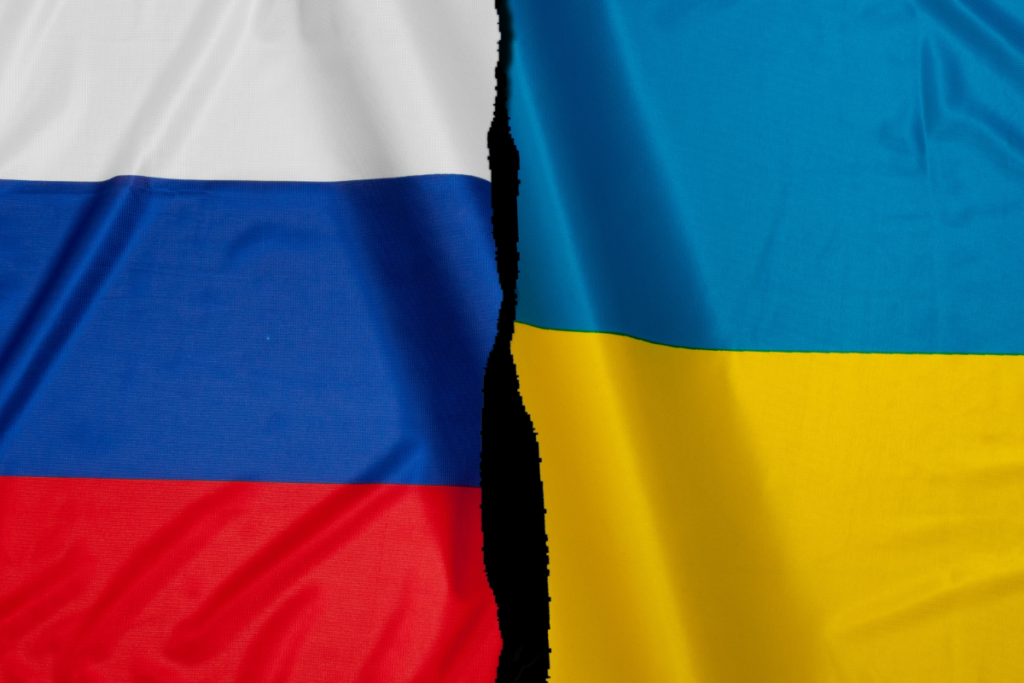Growing concern over the Ukrainian crisis has pushed stock markets into a correction. Domestic stock markets tumbled more than 3% on Thursday morning and joined the global sell-off in equities as worsening tensions between Russia and Ukraine and higher crude oil prices weighed on sentiment. As the Ukraine crisis erupted, Brent crossed the $100 mark and Asia-Pacific stocks tumbled amid fears of supply disruptions and sanctions.

Oil prices have also risen because of the crisis, as sanctions imposed on Russia by its Western allies raised concerns about disruptions in energy supplies. Expectations of disruptions in the supply of raw materials have pushed up prices in futures markets, especially for oil and natural gas, which could rise significantly if the Russian-Ukrainian crisis escalates and Western sanctions come into force. According to Michael Nderitu, head of trade at AZA, the rise in oil prices following the Ukraine crisis will hit Africa’s crude oil-importing countries hard. If the Ukrainian crisis continues to escalate, the market is likely to take further hits as oil prices are expected to remain high.
Conflict in Ukraine Ukraine and sanctions on Russia are expected to push up energy prices in Asia. The conflict in Ukraine and sanctions on Russia, the world’s second-largest natural gas exporter and third-largest oil producer, are expected to further boost energy prices in Asia. Sanctions on Moscow and its energy exports could mean lower supplies, pushing up prices. Russia, in turn, could respond to any sanctions targeting Russian financial interests by restricting energy exports to Europe, especially natural gas.
While this is risky, we do not expect Russia to cut Russian oil exports in response to sanctions because its revenues will be severely reduced. As for crude oil, we do not expect a turnaround from the export of Russian oil products. We do not expect an increase in demand due to the transition from gas to oil if the crisis hits gas exports from Russia. Analysts expect natural gas exports from Russia to Western Europe to drop significantly through both Ukraine and Belarus in the event of sanctions, saying gas prices could revisit fourth-quarter levels.
Investors should be aware of the impact on oil prices from the disruption of Russian pipeline exports. Moscow’s influence on commodity markets, especially oil, is significant, and if oil and gas supplies to the country are limited, this could lead to inflationary pressure. Since Russia is also the source of 10% of the world’s energy and almost 50% of the energy consumed in Europe, the conflict creates risks that could extend beyond the two countries, including higher energy prices and greater country volatility. , financial markets. Russia is a major energy producer, and tensions have led to large fluctuations in energy price volatility, as well as the imminent risks of a wider conflict that will dampen economic activity in Europe and around the world.
In Ukraine, the crisis could disrupt economic activity and damage fixed assets. Geopolitical tensions sparked by Russia’s invasion of Ukraine immediately reverberated across the global economy and markets. The Russian invasion of Ukraine is plunging Europe into its worst crisis since World War II, with economic repercussions spilling over into Asia. Russia’s full-scale invasion of Ukraine this week sparked a flurry of sanctions and turmoil in global financial markets.
Fears are growing that the crisis could escalate as the US and European allies retaliate against Russia. While tensions between Russia and Ukraine have been escalating for years, the current hostilities raise concerns about the potential impact on financial markets and the global economy. A potential invasion by neighboring Russia into Ukraine will be felt in several markets, from grain and energy prices to the region’s dollar-denominated sovereign bonds, safe-haven assets and stock markets.
A major risk event usually results in investors rushing back to bonds, usually considered the safest assets, and this time around it could be the same, although a Russian invasion of Ukraine risks further pushing up oil prices and therefore inflation. While no one can be sure how events will play out, history shows that whenever a geopolitical conflict arises, financial markets react more strongly to rising energy prices and the Federal Reserve tightens monetary policy. However, fortunately, history shows that while geopolitical crises like the one between Russia and Ukraine can temporarily turn markets upside down, they generally do not have long-term consequences for investors.
Some investors or savers may try to protect their funds or assets by moving them to traditional safe havens such as gold, especially as the Russian-Ukrainian conflict develops and markets may face greater volatility. It’s another matter for these market players to face prolonged uncertainty about what a well-studied global economic infrastructure might look like as Russia’s invasion of Ukraine expands and leads to tougher sanctions.
Any severe economic sanctions against Russia could affect many financial institutions that provide liquidity to financial markets. Another factor that could affect the economic and market impact of the situation is the ability of the United States and Europe to impose economic sanctions on Russia.
Concerns about a potential supply disruption to oil markets due to the war in Ukraine have sent crude oil prices above $100 a barrel for the first time since 2014, with Brent reaching $105. geopolitical tensions escalated, which led to higher fuel prices. The Russian-Ukrainian conflict is expected to drive the latter even further and has already lifted oil prices to their highest level in more than seven years, while future gas prices are up 60% in a single day. Russia-Ukraine Impact on commodities and equity sectors Rising energy and agricultural prices only exacerbate concerns about inflation, which primarily worries both investors and the Federal Reserve.
